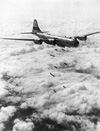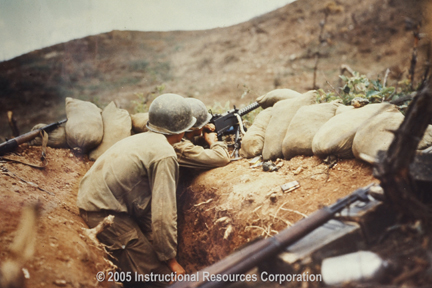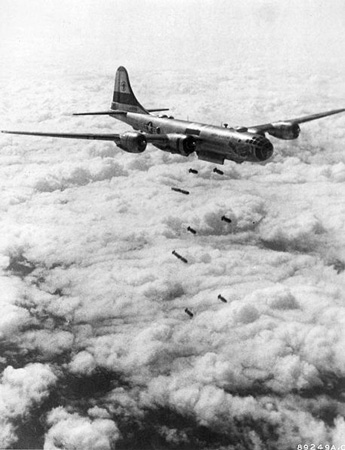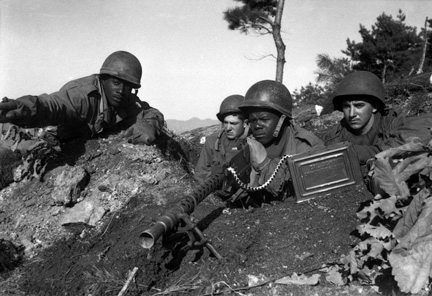|
Following successful completion of this lesson, students will be able to:
|
| Two U.S. soldiers in the Korean War | |||
|
|||
| Two U.S. soldiers in the Korean War. IRC. 2005. Discovery Education. 15 February 2010 <http://streaming.discoveryeducation.com/> |
|||
| In the Korean War, on the western front, two U.S. soldiers man their machine gun. |
Overview
Following the June invasion of South Korea by communist North Korea, UN forces launched an amphibious assault on North Korean troops in September 1950. Within a matter of days, UN troops had managed to turn the tide of the war in their favor. Soon thereafter they approached the 38th parallel; the line that reflected the boundary between the two Koreas. It was at this juncture that President Truman and General Douglas MacArthur debated about the true goal of the war. Originally the goal had been to only "contain" communism, which meant pushing the North Koreans back across the 38th parallel. However, with that goal so easily accomplished, MacArthur petitioned for a broader goal of uniting the two Koreas under democratic rule. After much discussion, Truman consented with the understanding that the Chinese were not to be enticed into the war. MacArthur agreed, but quickly disregarded Chinese warnings of entry as UN forces approached the Chinese border. By November, the Chinese had entered the war and easily pushed UN forces back to the 38th parallel.
A stalemate ensued for the next three years. Finally in July 1953, a ceasefire was negotiated with the 38th parallel remaining the agreed upon border. Although no territorial gains were made, the US viewed this war as a victory in the broader Cold War. They accomplished their original goal of "containing" communism. But just as importantly, they communicated to the Soviet Union that they were willing to use force if necessary to back up their Containment policy.
| B-29 Bomber | |||
 |
|
||
 |
|||
 |
|||
 |
|||
| B-29 Bomber. Photo courtesy of the U.S. Airforce This image is in the public domain. |
|||
| The KPAF shot down some 16 B-29 bombers in the war. |
| American soldiers in the Korean War | |||
 |
|
||
 |
|||
 |
|||
 |
|||
| American soldiers in the Korean War. U.S. National Archives and Records Administration. This image is in the public domain. |
|||
| US infantry in a machine gun position during the Korean War. |


